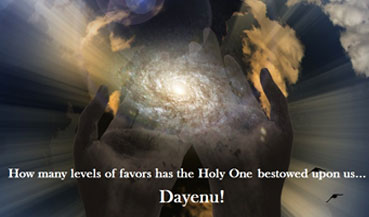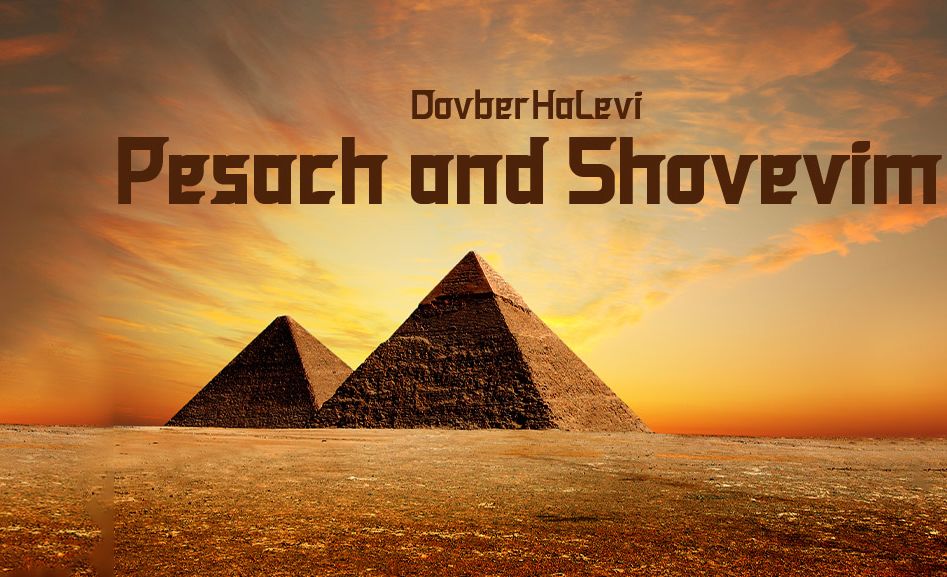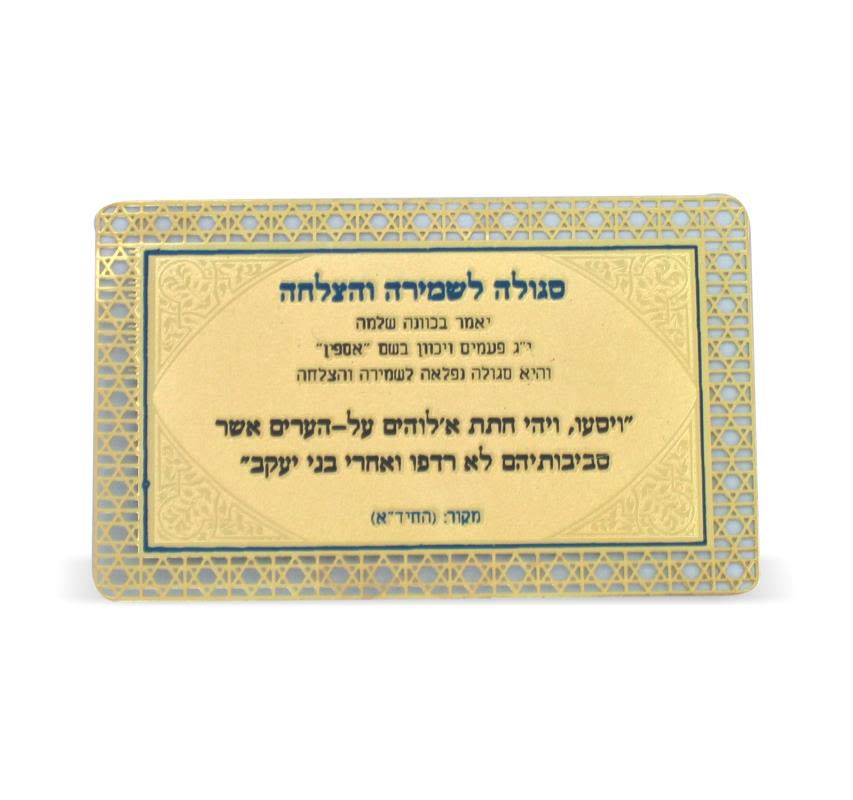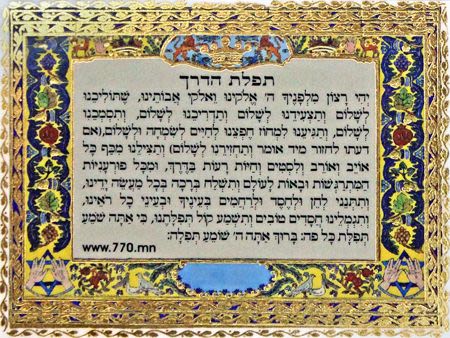
The Hidden Hand
Not just a simple song - the Dayenu sonnet is the focal point of the Passover Seder, where we gain a glimpse of the hidden hand..

An all-time family favorite of the Passover Seder is the Dayenu (It Would Have Been Enough) sonnet. As a child growing up in a secular-Jewish neighborhood, all my friends would sing Day-Dayenu, Day-Dayenu – they all knew the famous Passover song. What’s the secret of its universality? How has Dayenu become as widespread as matza ball soup, something that everyone is familiar with, religious or not?
Before we answer our questions, let’s note that this amazing sonnet lists fourteen significant favors that Hashem has done for us, many of which we either ignore or take for granted. The anonymous holy Tannaic sage whom refer to as Baal HaHaggada, the author and editor of the Haggadah, knew that ingratitude is toxic to the Jewish soul. The very word for “Jew” in Hebrew, Yehudi, means one who gives thanks. The mitzvot of Passover, and particularly the mitzva of Seder Night, are vehicles of expressing our gratitude to the Almighty; and, out of all the Seder, Dayenu does just that in the loveliest manner.
This year, let’s stop and elaborate on Dayenu at our Seder table. The bold letters below is our translation of the original prayer; our explanation appears in the adjacent the normal letters. No numbers appear in the original sonnet, but we added numbers to show the cumulative effect:

How many cumulative favors has the Holy One bestowed upon us!
1. If He had taken us out from Egypt, and had not executed judgments against them – Dayenu, it would have been enough for us! Sometimes people are saved from the hands of their oppressors but they don’t get to see their downfall. Hashem not only enabled us to see the downfall of the Egyptians, but in executing severe punishments against them, He warns our subsequent oppressors that they will attain a similar fate; history shows that they always do.
2. If He had executed judgments against them, and not against their idols – Dayenu, it would have been enough for us! The other pagans of the world may have maintained that Hashem was mighty against flesh-and-blood but powerless against their idols, Heaven forbid. By destroying them, Hashem showed otherwise. As our G-d, His might heightens the prestige of those who believe in Him.
3. If He had demolished their idols, and had not killed their first-born – Dayenu, it would have been enough for us! The pagans and the heretics still had room to deny the concept of Divine providence. When Hashem smote the firstborn of Egypt, He demonstrated a doubly miraculous measure of Divine providence, differentiating between those who were firstborn to their fathers and those who were not, and between the differentiating between Jewish and non-Jewish firstborns.
4. If He had killed their first-born, and had not given us their wealth – Dayenu, it would have been enough for us! As if it wasn’t sufficient that Hashem freed us from slavery in Egypt, He gave us all the money retroactively that we should have been paid for our labors.
5. If He had given us their wealth, and had not split the sea for us – Dayenu, it would have been enough for us! The weak believers might continue to maintain that our receiving the Egyptians’ wealth was a simple matter of social justice and fate; splitting the sea showed the world how Hashem personally overrides nature, fate and logic to perform miraculous deeds for Israel.
6. If He had split the sea for us, and had not taken us through it on dry land – Dayenu, it would have been enough for us! Here, Hashem shows us a miracle upon miracle. Sure, the sea split but the seabed should have been a muddy mess and most difficult to traverse. It was bone-dry for Israel.
7. If He had taken us through the sea on dry land, and had not drowned our oppressors therein – Dayenu, it would have been enough for us! Even though the sea-bed was bone-dry for Israel, it returned to its natural muddy status once the Egyptians entered it. Immediately, their chariots were bogged down in the heavy mad and once they were trapped, the walls of the sea crashed down on their heads.
8. If He had drowned our oppressors therein, and had not supplied our needs in the desert for forty years – Dayenu, it would have been enough for us! If it were not enough that Hashem rescued us from our oppressors, He continued to sustain us miraculously – not in Iowa or Switzerland, but in the desolate Sinai Desert!
9. If He had supplied our needs in the desert for forty years, and had not fed us the manna – Dayenu, it would have been enough for us! Hashem could have fed us bread and water, but instead, He miraculously provided the sublime delicacy of manna, the Heaven-sent bread, which itself was miraculous in many ways. It tasted whatever you wanted it to taste like.
10. If He had fed us the manna, and had not given us the Shabbat – Dayenu, it would have been enough for us! Hashem gave us a double portion of manna on Friday so that we would not have to worry about where our food will come from on Shabbat. Who can estimate the priceless gift of our weekly day of rest for body and soul, ever so conducive to getting close to Hashem.
11. If He had given us the Shabbat, and had not brought us in proximity to Mount Sinai – Dayenu, it would have been enough for us! To bring us even closer, Hashem revealed Himself to our entire nation on Mount Sinai.
12. If He had brought us in proximity to Mount Sinai, and had not given us the Torah – Dayenu, it would have been enough for us! If it wasn’t enough that Hashem revealed Himself to us, He gave us the Holy Book that is the secret of our timelessness despite all that has befallen us.
13. If He had given us the Torah, and had not brought us into the land of Israel – Dayenu, it would have been enough for us! As if the Torah wasn’t the most precious gift that Hashem could give us, He brought us especially to the Land of Emuna and its inherent holiness, the ideal place on earth for fulfilling the Torah’s commandments.
14. If He had brought us into the land of Israel, and had not built for us the Holy Temple – Dayenu, it would have been enough for us! We now await for the imminent rebuilding of our third and final Holy Temple, may it be built soon in our days, amen!
Thus how much more so should we be grateful to the Omnipresent One for the doubled and redoubled goodness that He has bestowed upon us; for He has brought us out of Egypt, and carried out judgments against them, and against their idols, and smote their first-born, and gave us their wealth, and split the sea for us, and took us through it on dry land, and drowned our oppressors in it, and supplied our needs in the desert for forty years, and fed us the manna, and gave us the Shabbat, and brought us before Mount Sinai, and gave us the Torah, and brought us into the land of Israel and built for us the Beit HaMikdash to atone for all our sins.
Is there a reason that the Baal HaHaggada listed fourteen particular favors, no more and no less? He quotes the Torah and says that Hashem took us out of Egypt with “a strong hand and an outstretched arm”. “Hand” in Hebrew is yad, spelled יד (yud-dalet). In Hebrew numerics, yud=10 and dalet=4, together the sum of fourteen. The Dayenu sonnet is therefore a hint that Hashem’s mighty hidden hand that not only took us out of Egypt, but personally massages our hearts and sustains us each moment of the day.
To be truly happy, we should all sit down and compose our own list of Dayenus – once we open our eyes to all our blessings and thank Hashem for them, life becomes a Heaven on earth. Happy Passover!










Tell us what you think!
Thank you for your comment!
It will be published after approval by the Editor.